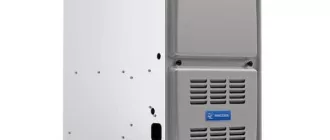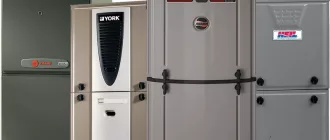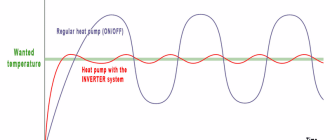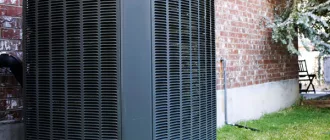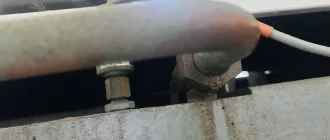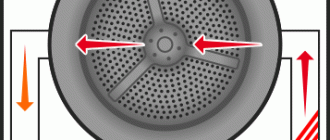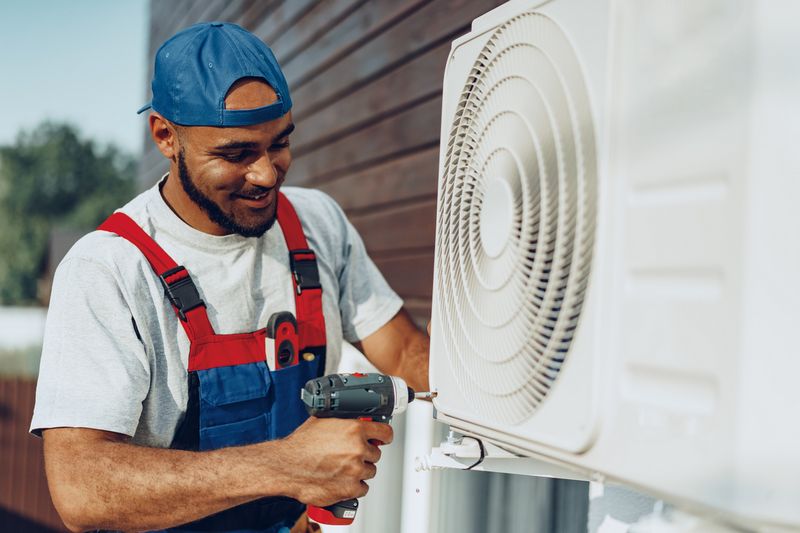
Repair or Replace Your HVAC System? A Guide to Help You Decide
In the world of heating, ventilation, and air conditioning (HVAC) systems, homeowners often find themselves facing the tough decision of whether to repair or replace their existing system. This guide is here to help you make an informed decision. With a focus on the keywords “hvac, replace, repair, help, decide,” we will explore the factors to consider when determining whether to repair or replace your HVAC system.
When your HVAC system encounters issues, it’s important to evaluate the cost-benefit analysis of repairing versus replacing the system. Our guide will provide you with an understanding of what factors should influence your decision-making process. We’ll discuss the age and condition of your HVAC system, energy efficiency ratings, repair costs, and the long-term cost of ownership.
Deciding whether to repair or replace your HVAC system involves taking into account not only immediate expenses but also potential long-term savings. Additionally, we’ll provide you with expert advice on when to consult professionals and give you tips on routine maintenance to prolong the lifespan of your system. By the end of this guide, you’ll have the necessary knowledge to confidently decide whether to repair or replace your HVAC system.
Understanding Your HVAC System
Your HVAC system plays a crucial role in keeping your home comfortable throughout the year. By understanding how your system works, you can make more informed decisions when it comes to repairing or replacing it.
HVAC, which stands for Heating, Ventilation, and Air Conditioning, is a complex system that regulates the temperature, humidity, and air quality in your home. It consists of several components that work together to provide cooling and heating to different areas of your house.
Keywords such as “replace” and “repair” are often used when discussing HVAC systems. Deciding whether to repair or replace your system can be a challenging task, but having a solid understanding of how it works can help you make a more informed decision.
A typical HVAC system consists of the following components:
- Thermostat: This is the control panel that allows you to adjust the temperature in your home.
- Furnace: The furnace is responsible for heating the air that is distributed throughout your home.
- Air Conditioner: The air conditioner cools the air and removes humidity from your home.
- Ductwork: Ductwork is a series of tubes that carry heated or cooled air throughout your home.
- Ventilation System: The ventilation system helps remove stale air and circulates fresh air into your home.
Understanding how each component of your HVAC system works and communicates with each other can help you troubleshoot issues and determine whether a repair or replacement is necessary. Regular maintenance and servicing of your HVAC system can also prolong its lifespan and prevent costly repairs in the future.
In conclusion, understanding your HVAC system is crucial in making informed decisions about repairing or replacing it. By familiarizing yourself with the different components and how they work together, you can better determine the best course of action for your home and budget.
Signs Your HVAC System Needs Repair or Replacement
If you’re trying to decide whether to repair or replace your HVAC system, it’s important to look out for certain signs that indicate it may be time for a change. Ignoring these signs could lead to more expensive repairs down the line, or even a complete system breakdown.
Here are some key indicators that your HVAC system may need repair or replacement:
- Age: If your HVAC system is more than 10-15 years old, it may be nearing the end of its lifespan. Older systems tend to be less efficient and more prone to breakdowns. In this case, replacing the system with a newer, more energy-efficient model may be the best option.
- Increasing Energy Bills: If you’ve noticed a sudden increase in your energy bills without any significant changes in your usage habits, your HVAC system could be to blame. A malfunctioning system may have to work harder to maintain a comfortable temperature, resulting in higher energy consumption.
- Loud Noises: Unusual noises coming from your HVAC system, such as grinding, banging, or squealing, are indicators of mechanical issues. These noises could be a sign that certain components are wearing out and in need of repair or replacement.
- Poor Air Quality: If you’ve been experiencing worsened indoor air quality, such as a constant presence of dust, excessive humidity, or unpleasant odors, your HVAC system may be the culprit. A faulty system can fail to effectively filter and regulate the air, leading to poor ventilation and potential health issues.
- Frequent Repairs: If you find yourself constantly calling for HVAC repairs and spending money on fixing various components, it may be more cost-effective in the long run to replace the entire system. Ongoing repairs can add up quickly and may not provide a long-lasting solution.
Remember, these signs are just a guide to help you decide whether to repair or replace your HVAC system. It’s always recommended to consult with a professional HVAC technician who can assess your specific situation and provide expert advice.
By paying attention to these keywords and indicators, you can make an informed decision about the future of your HVAC system and ensure that your home remains comfortable and energy-efficient.
Factors to Consider When Deciding
When deciding whether to repair or replace your HVAC system, there are several important factors to consider. These factors can help you make an informed decision that is best for your specific situation. Here are some of the key factors to keep in mind:
Age of the System: The age of your HVAC system is an important factor to consider. As a general rule of thumb, if your system is over 10 years old, it may be more cost-effective to replace rather than repair.
Condition of the System: Take a close look at the overall condition of your HVAC system. If it is frequently breaking down or requires constant repairs, it may be time to replace it. On the other hand, if it is in good condition and only needs minor repairs, repairing may be the better option.
Energy Efficiency: Consider the energy efficiency of your current system. Older HVAC systems tend to be less efficient, resulting in higher energy bills. If you replace your system with a more energy-efficient model, you could potentially save money in the long run.
Cost of Repairs: Get a quote for the cost of repairs from a reputable HVAC technician. Compare this cost to the price of a new system. If the repair cost is significantly more expensive than a replacement, it may be more cost-effective to replace.
Long-Term Plans: Think about your long-term plans for your home. If you plan to sell your home in the near future, a new HVAC system could increase its value. On the other hand, if you plan to stay in your home for many years, repairing the current system may be a more budget-friendly choice.
Consider these factors carefully when deciding whether to repair or replace your HVAC system. It’s always a good idea to consult with a professional HVAC technician who can provide expert advice based on your specific needs and circumstances.
Pros and Cons of Repairing Your HVAC System
When it comes to deciding whether to repair or replace your HVAC system, there are a number of factors to consider. Here are some pros and cons of repairing your HVAC system:
Pros of Repairing Your HVAC System:
- Cost-effective: Repairing your HVAC system can be a more affordable option compared to replacing the entire system. It allows you to address specific issues without incurring the cost of a full replacement.
- Faster solution: Repairing your HVAC system usually takes less time than replacing it. This means you can get your system up and running again quickly, ensuring you have a comfortable environment in your home or business.
- Preserves familiarity: If you are accustomed to the performance and features of your current HVAC system, repairing it allows you to maintain that familiarity. You don’t have to spend time learning how to operate a new system.
- Potential energy savings: Repairing your HVAC system can also improve its energy efficiency. Fixing any issues can help your system run more efficiently, potentially saving you money on energy bills in the long run.
Cons of Repairing Your HVAC System:
- Temporary solution: Repairing your HVAC system is not a permanent solution. Depending on the age and condition of your system, it may only provide a short-term fix. Eventually, you may still need to replace the system.
- Higher maintenance costs: If your HVAC system requires frequent repairs, the costs can add up over time. These expenses may negate any initial cost savings you gained from repairing instead of replacing.
- Outdated technology: Repairing an old HVAC system may not address any outdated technology or features. This could mean missing out on the energy efficiency and advanced features of newer systems.
- Limited warranty: Repairs usually come with a limited warranty, which means you may be responsible for any future repairs or replacements that are needed. In contrast, a new system often comes with a longer warranty.
When deciding whether to repair or replace your HVAC system, it’s important to weigh these pros and cons. Consider factors such as the age and condition of your system, the cost of repairs, and the potential energy savings. Ultimately, the decision will depend on your specific needs and budget.
Pros and Cons of Replacing Your HVAC System
When it comes to deciding whether to repair or replace your HVAC system, there are several factors to consider. While repairing your system might be the more cost-effective option in the short term, replacing it could help you save money and energy in the long run. Here are some pros and cons to consider when deciding to replace your HVAC system:
Pros:
- Greater energy efficiency: One of the biggest advantages of replacing your HVAC system is the potential for greater energy efficiency. Newer models are designed to be more energy-efficient, which can result in lower utility bills and a smaller carbon footprint.
- Improved indoor air quality: Replacing your old HVAC system can help improve the indoor air quality in your home. Newer systems often have advanced filtration systems that can remove dust, allergens, and other pollutants from the air.
- Warranty coverage: When you replace your HVAC system, you typically receive a warranty that covers the cost of any necessary repairs or replacements. This can provide peace of mind and help protect your investment.
- Increased comfort: Newer HVAC systems are often more effective at maintaining a comfortable temperature throughout your home. They can provide consistent heating and cooling, helping to eliminate hot or cold spots.
Cons:
- Higher upfront costs: One of the main drawbacks of replacing your HVAC system is the higher upfront costs. Purchasing a new system can be expensive, especially if you opt for a high-efficiency model or need additional modifications to your ductwork or electrical system.
- Disruption to your home: Replacing your HVAC system can require significant work and may cause some disruption to your daily routine. Installations can take several days, during which time you may not have access to heating or cooling.
- Unforeseen issues: While replacing your HVAC system can help prevent future breakdowns, there is always a chance that unforeseen issues could arise. Even with a warranty, you may still have to cover some repair costs if certain parts or components fail.
- Environmental impact: Manufacturing and disposing of HVAC systems can have an environmental impact. While newer systems are more energy-efficient, the manufacturing process can still contribute to carbon emissions and the disposal of old systems can pose environmental challenges.
Ultimately, the decision to replace your HVAC system should be based on a careful analysis of your specific situation and needs. Consider factors such as the age and condition of your current system, the projected energy savings, your budget, and any potential long-term benefits. Consulting with a professional HVAC technician can also help provide valuable insights and guidance to help you make an informed decision.
Cost Comparison: Repair vs. Replacement
When it comes to your HVAC system, knowing whether to repair or replace it can be a difficult decision to make. This guide is here to help you weigh the options and make an informed choice.
One of the most important factors to consider is cost. Repairing your HVAC system is typically less expensive upfront than replacing it. A repair may only require replacing a few parts or fixing a specific issue, which can be done at a lower cost.
On the other hand, replacing your HVAC system can be a more costly investment upfront. However, it’s important to consider the long-term costs. An older system that requires frequent repairs can end up costing you more in the long run.
Another factor to consider is the age of your HVAC system. Typically, HVAC systems have a lifespan of around 15 to 20 years. If your system is nearing the end of its lifespan, it may make more sense to replace it rather than investing in costly repairs that may only provide a temporary fix.
Efficiency is also an important factor to consider. Older HVAC systems tend to be less energy-efficient, resulting in higher utility bills. By replacing your outdated system with a newer, more efficient one, you can potentially save on your energy costs in the long run.
Ultimately, the decision to repair or replace your HVAC system depends on your specific situation and considerations. It’s important to consult with a professional HVAC technician to assess the condition of your system and provide expert advice.
Remember, this guide is here to help you make an informed decision. By considering the cost, age, and efficiency of your system, you can determine whether a repair or replacement is the right choice for you and your HVAC system.
Energy Efficiency and Environmental Impact
When deciding whether to repair or replace your HVAC system, it’s important to consider the energy efficiency and environmental impact of your decision. HVAC systems are responsible for a significant portion of a home’s energy usage, so optimizing their efficiency can result in significant energy savings and reduce your carbon footprint.
By repairing your current system, you may be able to improve its energy efficiency and reduce its environmental impact. Regular maintenance and repairs can help ensure that your system is running optimally, preventing it from using excess energy and potentially releasing harmful emissions.
On the other hand, replacing your HVAC system can also provide an opportunity to upgrade to a more energy-efficient model. Newer systems often come with advanced features, such as programmable thermostats and variable-speed technology, that can help reduce energy consumption and improve indoor comfort. Additionally, many new HVAC systems are designed with environmentally-friendly refrigerants, which have a lower impact on the ozone layer and global warming potential.
When making your decision, consider the keywords “SEER” (Seasonal Energy Efficiency Ratio) and “EER” (Energy Efficiency Ratio). These ratings indicate the energy efficiency of an HVAC system, with higher numbers representing greater efficiency. Energy Star certified systems meet strict efficiency standards and can help you save money on utility bills while reducing your environmental impact.
It’s important to note that replacing a functioning HVAC system solely for the purpose of improving energy efficiency may not always be the most cost-effective or environmentally-friendly option. If your system is still in good working condition and can be repaired at a reasonable cost, it may be worth considering repairs instead of a full replacement.
- Regular maintenance and repairs can improve energy efficiency and reduce environmental impact
- New HVAC systems offer advanced features and environmentally-friendly refrigerants
- Consider SEER and EER ratings when evaluating the energy efficiency of HVAC systems
- Replacing a functioning system solely for energy efficiency may not always be cost-effective
Lifespan of HVAC Systems
The lifespan of HVAC (heating, ventilation, and air conditioning) systems can vary depending on several factors. Proper maintenance and regular servicing can help extend the lifespan of your HVAC system. However, there comes a time when you need to consider whether it is more cost-effective to repair or replace your HVAC system.
The average lifespan of an HVAC system is typically around 15-20 years. However, this can vary depending on the quality of the system, how well it has been maintained, and the climate it operates in.
If your HVAC system is reaching the end of its lifespan, it may be worth considering a replacement rather than investing in costly repairs. Older systems tend to be less energy-efficient and can result in higher utility bills. Additionally, older systems may be more prone to breakdowns and require more frequent repairs.
When deciding whether to repair or replace your HVAC system, it is important to evaluate the cost of repairs versus the cost of a new system. If the repairs are minor and relatively inexpensive, it may be more cost-effective to repair the existing system. However, if the repairs are extensive or if the system is older and likely to require further repairs in the near future, it may be more cost-effective to replace the system.
It is also important to consider the efficiency of your current HVAC system. Newer systems are typically more energy-efficient, which can result in significant savings on your utility bills. While there is an upfront cost associated with replacing the system, the long-term energy savings can often offset this cost.
Ultimately, the decision to repair or replace your HVAC system will depend on a variety of factors, including the age of the system, the extent of the repairs needed, and your long-term budget. Consulting with an HVAC professional can help guide you in making the best decision for your specific situation.
Upgrading Your HVAC System
If you’re looking to improve the comfort and efficiency of your home, upgrading your HVAC system can be a great option for you. With advances in technology, newer HVAC systems offer improved energy efficiency, better indoor air quality, and increased performance.
When deciding whether to upgrade your HVAC system, it’s important to consider a few key factors. First, evaluate the age and condition of your current system. If it’s more than 10 years old or requires frequent repairs, it may be more cost-effective to replace it with a newer model.
Next, consider your energy bills. If you’re noticing a steady increase in your energy costs, it may be a sign that your HVAC system is not operating efficiently. Upgrading to a more energy-efficient model can help lower your utility bills and save you money in the long run.
Another factor to consider is the quality of indoor air in your home. Older HVAC systems may not effectively filter out contaminants, allergens, and pollutants, which can have a negative impact on your health. Upgrading to a system with advanced filtration capabilities can greatly improve the air quality in your home.
When upgrading your HVAC system, be sure to hire a qualified professional to handle the installation. They can help guide you through the process and ensure that the new system is properly installed and functioning correctly.

In conclusion, upgrading your HVAC system can help improve the comfort, efficiency, and air quality in your home. By considering factors such as the age and condition of your current system, energy costs, and indoor air quality, you can make an informed decision on whether to repair or replace your HVAC system. Remember to consult with a professional to help you decide and ensure a smooth installation process.
Common HVAC Problems and Troubleshooting Tips
When it comes to your HVAC system, there are several common problems that can arise. These issues can range from minor repairs to the need for a full system replacement. In this guide, we will help you understand these problems and provide you with some troubleshooting tips.
1. Insufficient Cooling or Heating: If your HVAC system is not providing enough cool air in the summer or warm air in the winter, there could be a few potential causes. Start by checking the thermostat settings to ensure they are properly set. You should also check if the air filter is dirty and needs to be replaced. If these steps do not solve the issue, it’s best to call a professional for further inspection.
2. Uneven Temperature: If you notice that some rooms in your home are colder or warmer than others, there may be an issue with your HVAC system. This could be caused by blocked or closed air vents, improper insulation, or leaky ductwork. Check to make sure all vents are open and unobstructed. If the issue persists, it’s advisable to consult an HVAC technician for assistance.
3. Loud or Strange Noises: Unusual sounds coming from your HVAC system may indicate a problem. Rattling, banging, or screeching noises could be a sign of loose or worn-out parts. If you hear these noises, it’s important to turn off your system and call a professional for repairs or replacements as needed.
4. Inefficient Energy Usage: If your HVAC system is consistently leading to high energy bills, it could be operating inefficiently. This could be due to a range of issues, such as old or outdated equipment, leaky ductwork, or improper insulation. Performing regular maintenance, including cleaning or replacing air filters and scheduling professional inspections, can help improve energy efficiency.
Remember, while these troubleshooting tips may help resolve some common HVAC problems, it’s always best to consult a qualified professional for accurate diagnosis and repairs. Regular maintenance and inspections can also help identify and prevent potential issues before they become major problems.
Hiring a Professional HVAC Technician
When it comes to the repair or replacement of your HVAC system, hiring a professional HVAC technician is crucial. They have the expertise and knowledge to determine whether you should repair or replace your HVAC system, and can guide you in making the best decision.
Keywords such as “repair,” “guide,” “replace,” “HVAC,” “decide,” and “help” are all important factors to consider when hiring a professional HVAC technician. These keywords will help you find a technician who can provide you with the necessary assistance and guidance.
First and foremost, it is important to find a technician who specializes in HVAC systems. Look for certifications or qualifications that demonstrate their expertise in this field. This will ensure that they have the necessary knowledge and skills to handle your HVAC system properly.
Next, consider their experience in the industry. A technician with many years of experience will have encountered a wide range of HVAC problems and will have the know-how to diagnose and repair them. Additionally, an experienced technician will be familiar with the latest HVAC technology and can recommend the best course of action for your specific situation.
Another important consideration when hiring an HVAC technician is their reputation. Look for reviews or testimonials from previous customers to gauge their reliability and professionalism. A technician with a good reputation is more likely to provide quality service and ensure customer satisfaction.
Communication skills are also crucial when hiring an HVAC technician. They should be able to explain the repair or replacement process in a clear and concise manner, ensuring that you understand the options available to you. A good technician will also be responsive to your questions and concerns and provide you with regular updates on the progress of the job.
Finally, consider the cost of hiring a professional HVAC technician. While price should not be the sole determining factor, it is still an important consideration. Obtain multiple quotes from different technicians and compare them to ensure you are getting a fair and competitive price.
In conclusion, hiring a professional HVAC technician is essential when it comes to repairing or replacing your HVAC system. By considering their specialization, experience, reputation, communication skills, and cost, you can find a technician who will guide you in making the best decision for your HVAC system.
DIY HVAC Repairs: Is It Worth It?
When it comes to HVAC system repairs, there are two main options: replacing the system or attempting to repair it yourself. While DIY repairs may seem like a cost-effective solution, it’s important to consider the potential risks and benefits before diving in. This guide will help you make an informed decision by providing valuable insights into the process.
First and foremost, it’s essential to assess the complexity of the repair. HVAC systems are intricate and require specialized knowledge and tools. If you don’t have the necessary expertise, attempting a DIY repair could lead to further damage and costly repairs down the line. It’s crucial to be honest with yourself about your skill level before taking on the task.
Another factor to consider is the warranty of your HVAC system. Most systems come with a warranty that may be voided if you attempt to repair it yourself. Losing the warranty could result in significant financial consequences if your system experiences additional issues in the future.
Additionally, safety is a significant concern when it comes to DIY HVAC repairs. HVAC systems involve working with electrical components, refrigerant, and potentially hazardous substances. Without proper training and experience, you could put yourself at risk of injury or even cause damage to your home. Hiring a professional ensures that the repair is done safely and effectively.
Lastly, cost is an important consideration. While DIY repairs might save you money upfront, they can end up costing you more in the long run. Mistakes made during the repair process can lead to further damage and the need for a costly professional repair or replacement. It’s crucial to weigh the potential savings against the risks involved.
| Complexity of Repair | May not have the necessary knowledge and tools | Professionals have expertise and specialized tools |
| Warranty | Voiding the warranty could result in financial consequences | Professional repairs won’t void the warranty |
| Safety | Lack of experience can lead to safety hazards | Professionals ensure safe and effective repairs |
| Cost | Savings upfront, but potential for costly mistakes | May be more expensive initially, but less risk of mistakes |
In conclusion, when deciding between DIY HVAC repairs and professional repair or replacement, it’s important to consider the complexity of the repair, warranty implications, safety concerns, and the long-term cost. While DIY repairs can be enticing, it’s often worth investing in professional help to ensure the job is done right the first time. By weighing the risks and benefits, you can make an informed decision that will ultimately save you time, money, and potential headaches.
Choosing the Right HVAC System for Your Home
When it comes to deciding whether to repair or replace your HVAC system, having a guide to help you make the right decision is essential. The right HVAC system can provide comfort and energy efficiency for your home, while the wrong one can lead to high energy bills and constant repairs.
Here are a few factors to consider when choosing the right HVAC system for your home:
- Size: The size of your HVAC system is crucial. An undersized system will struggle to heat or cool your home effectively, while an oversized one will waste energy and lead to uneven temperatures. A professional HVAC technician can help you determine the appropriate size for your home.
- Energy Efficiency: The energy efficiency of an HVAC system is measured by its SEER (Seasonal Energy Efficiency Ratio) rating. The higher the SEER rating, the more energy efficient the system. Choosing an HVAC system with a high SEER rating can help you save money on energy bills over time.
- Quality: Investing in a high-quality HVAC system will ensure its longevity and reliability. While a cheaper system may save you money upfront, it could require frequent repairs and replacements in the long run. Look for reputable HVAC brands known for their quality and durability.
- Type: There are different types of HVAC systems, including central air conditioners, heat pumps, and ductless mini-split systems. Consider the specific needs of your home and climate when deciding on the type of system that will work best for you.
- Budget: The cost of HVAC systems can vary greatly. Set a budget for yourself and find a system that fits within that budget while still meeting your needs. Remember to consider the long-term savings on energy bills when evaluating the cost.
By considering these factors and seeking the advice of an HVAC professional, you can make an informed decision when choosing the right HVAC system for your home. Remember that investing in a high-quality, energy-efficient system can save you money and provide comfort for years to come.
Q&A:
How can I decide whether to repair or replace my HVAC system?
When deciding whether to repair or replace your HVAC system, you should consider the age of the system, the extent of the repairs needed, and the cost of a new system. If your HVAC system is over 10 years old and the repairs are expensive, it may be more cost-effective to replace the system with a new, more efficient one.
What are the signs that indicate my HVAC system needs to be replaced?
Some signs that indicate your HVAC system needs to be replaced include frequent breakdowns, high energy bills, uneven cooling or heating, and strange noises or smells. If you are experiencing these issues, it is recommended to have a professional inspect your system to determine if replacement is necessary.
How long does an HVAC system typically last?
The lifespan of an HVAC system can vary depending on various factors, including the quality of the system, how well it has been maintained, and how often it is used. On average, an HVAC system can last between 15 and 20 years. However, regular maintenance can help prolong the lifespan of the system.
Is it possible to repair an older HVAC system or is replacement always necessary?
It is possible to repair an older HVAC system, especially if the repairs are minor and the system is still relatively efficient. However, if the repairs are extensive and costly, it may be more practical to replace the system with a newer, more energy-efficient model.
What are the benefits of replacing an old HVAC system?
Replacing an old HVAC system can provide several benefits. A new system will be more energy-efficient, which can lead to lower energy bills. It will also provide better indoor comfort and air quality. Additionally, a new HVAC system often comes with a warranty, providing peace of mind for the homeowner.

